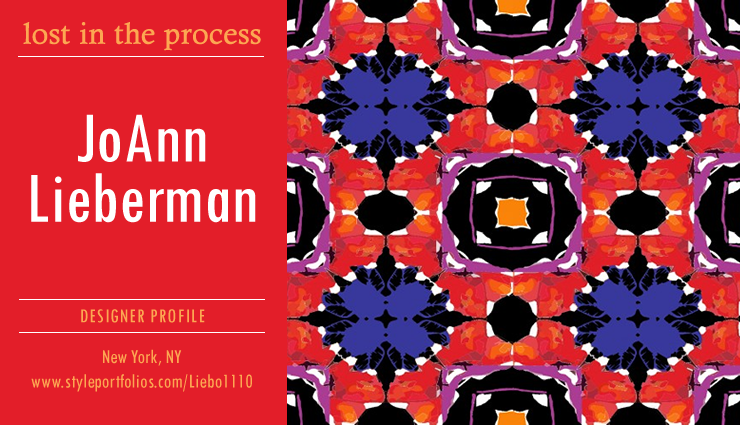
DESIGNER PROFILE – JOANN LIEBERMAN

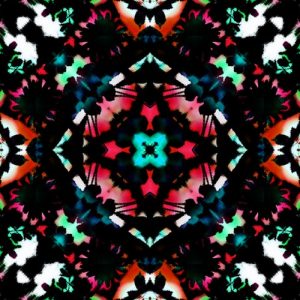
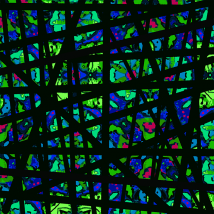
What should everyone know about you?
JL: I’ve served as a textile artist, art studio manager, print stylist and color coordinator primarily in the apparel industry for 30+ years, for Carole Little in Los Angeles, Young Stuff Apparel and Liz Claiborne in NYC. I continue to create prints and graphics for women’s knitwear, home accessories and gift wrap as a freelance artist .
Why did you choose to be a designer?
JL: Creating was something I just did for as long as I can remember. It was never something I thought of as a career choice though, or a means to make a living. In my senior year of high school, my art teacher entered a class assignment I had done into a local competition and it won first place. It was through her encouragement and guidance that attending art school after graduation became a viable option.
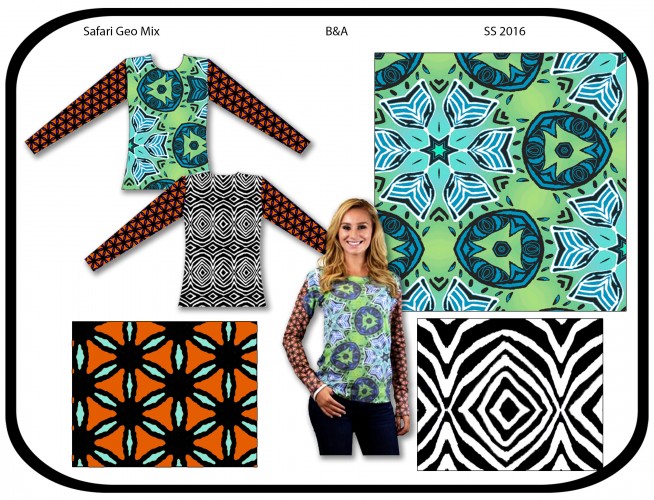
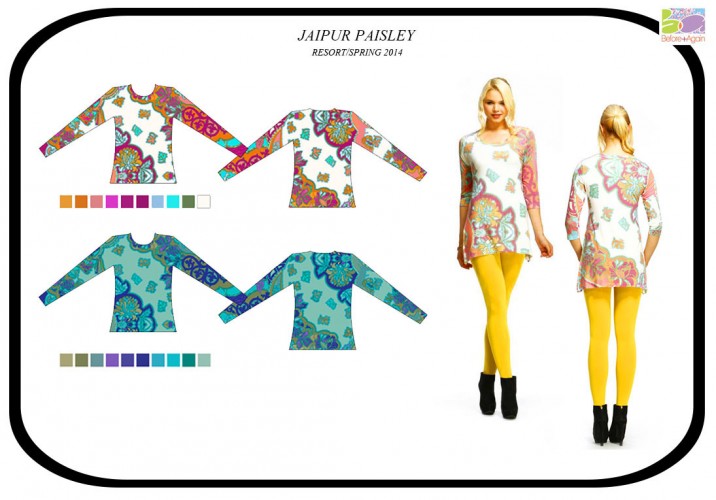
What steps did you take to become a designer?
JL: In the late 1960’s I worked as a sport shirt designer for an Oleg Cassini licensee in New York and shopped textile design studios for original prints and yarn dyed stripes. It was a time in fashion when prints for menswear was an exploding trend and I loved the idea of maybe designing the prints myself. After the birth of my first child, I took a textile design class at Parsons, and went on to apprentice at several textile studios in New York City. It was there that I observed and perfected the process of creating original artwork, hand painted pattern repeats, cohesive coordinates and collections, and accurate color matching.
Best/Most Challenging part of your job?
JL: I’m a chronic perfectionist so the most challenging part of my job was always deciding when a design was finished. If it weren’t for deadlines and time restraints which I’ve had to force myself to adhere to, I’d be completely undisciplined and rework a pattern a dozen times because I love getting lost in the process of creating and experimenting.

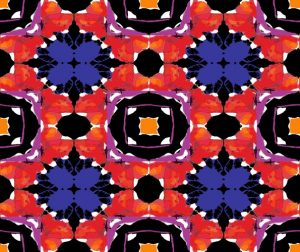
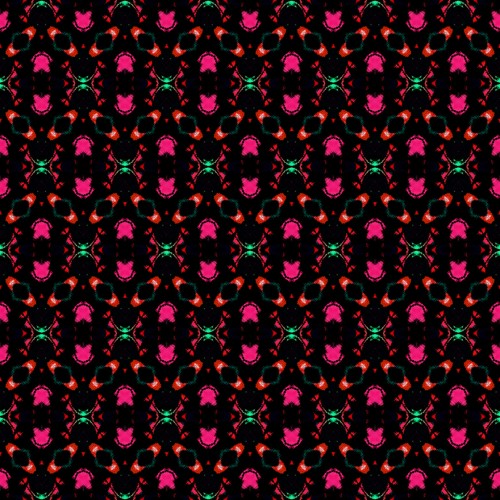
How did you get started in design?
JL: I studied fine arts at the School of Visual Arts in New York City in the mid 1960’s. It was a time when conceptual art, abstract expressionism and pop art were altering views of traditional art forms and I wanted to be part of that. It was also a time of increased consumerism by my generation, so although I thought I wanted to be a fine artist, fashion was shifting toward the youth culture, rock and roll and abandoning traditional values. It was an exciting period when youthful self-expression was a positive quality especially encouraged by the fashion establishment and so, it felt like the right choice for my own self expression, I just didn’t know what that meant yet.
What do you like about what you do?
JL: Ha….everything. The challenge of creating something beautiful out nothing but an idea, then taking that idea , maneuvering and manipulating it and putting color to it. Being absorbed in color and pattern has an amazing Zen-like effect and for me to experience that on a daily basis really makes work fulfilling. I still get excited when I see my designs in stores or catalogs.
Where do you see yourself in 10 years?
JL: Still absorbed in art. (and maybe playing fiddle in an Irish pub) . My career has been very fulfilling over the years and I’ve achieved most of my goals to my satisfaction. I’m getting back into painting now that I have the time to do so and would like to have a gallery show before my 70th birthday.
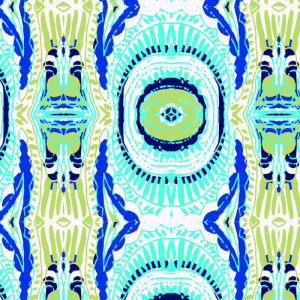
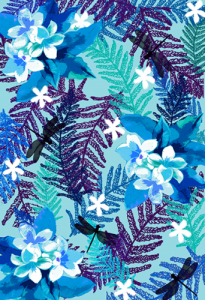
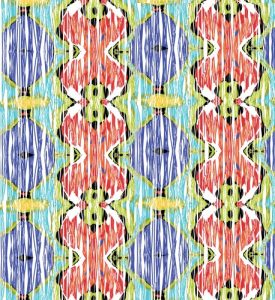
What sparked your interest in design?
JL: I never really cultivated the notion that I would become a fashion designer. My mother taught me how to sew, knit and crochet and I made wacky, multi-printed mini-skirts, bell bottom pants, and bulky mixed patterned scarves and hats, but I was more enamored with the textiles than the silhouettes. The creative foundation was always there, but my confidence in designing was more focused on prints, patterns and fibers.
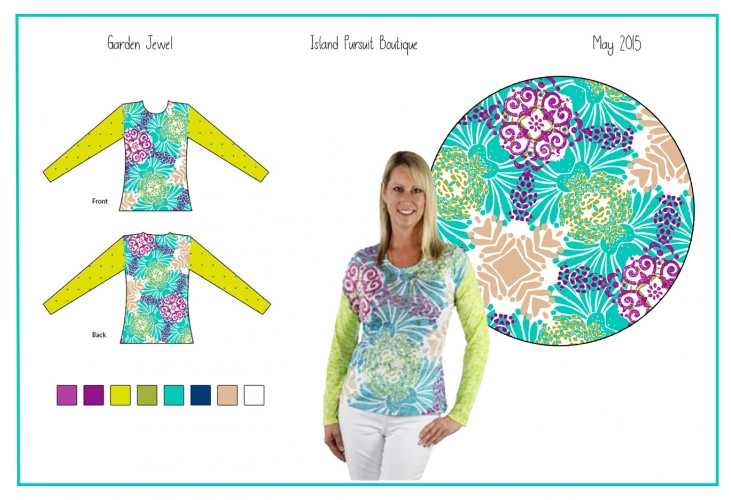
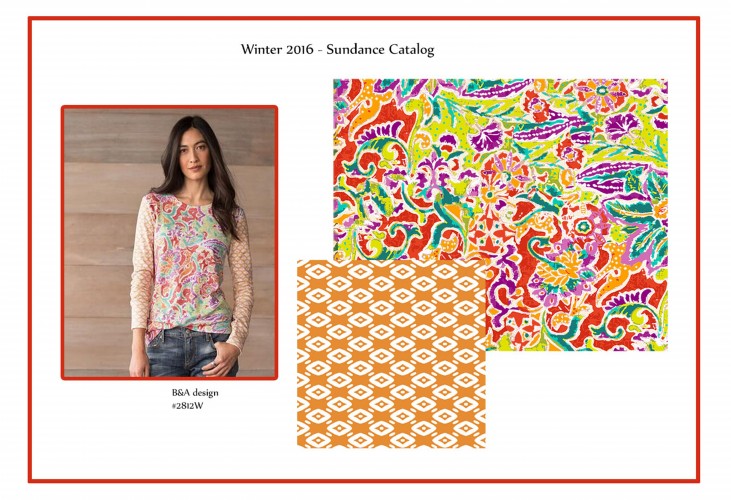
How has your work evolved since you began your career?
JL: Back in the day, we learned to hand paint patterns, repeats, colorways and mini-bodies before there were computers, which was tedious and time-consuming but something I loved doing. Now that printing technology has exploded, as has CAD, I continue to develop hand painted concepts but manipulate them in Photoshop & Illustrator, which opened up a whole new way of creating that I’m consistently excited by because it gives me the ability to experiment with a number of different techniques and methods with almost instant results.
Are there any types of clothing/footwear/accessories that you avoid wearing?
JL: Rum Raisin nail polish. My husband hates it.
What is the biggest lesson that you have learned since you started your career?
JL: Always stay current. It’s easy to stay current no matter what your age as long as you maintain an inquisitive mind. There’s always something more to be learned.
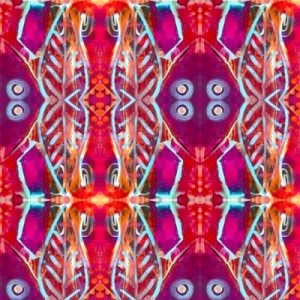
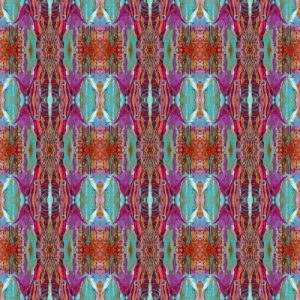
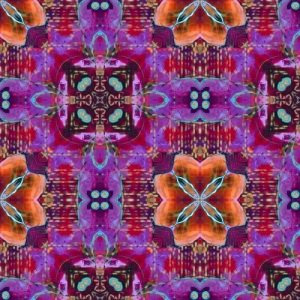
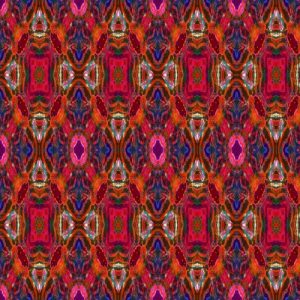


What are you fascinated by at the moment and how does it feed into your work?
JL: Dogs. I have a small pet wear business. In 2010 I started out creating alpaca sweaters and had them hand crocheted by Fair Trade artisans in Peru. Currently, I create fabric harnesses and matching leashes. I’ve always loved mixing patterns and vintage trims and, given my background in fabrics and textiles, I now create items for pets and will eventually extend into printing and using my own patterns.
www.etsy.com/shop/lollypups
What advice would you give to young designers?
JL: Listen, observe and work hard. Focus on what you love to do and get really good at it because you love it, not because you want to be a star. Both attitudes will show through but only real talent will bring you the desired results. Stand out.

What would you like to achieve before the end of the year?
JL: To master vibrato.
Are you superstitious or do you have any rules you live by?
JL: Always maintain a sense of humor.
What’s your motto?
JL: What wounds you will make you stronger. When you become stronger, you can kick serious butt.
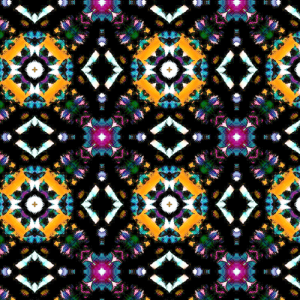
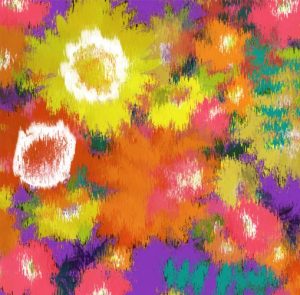
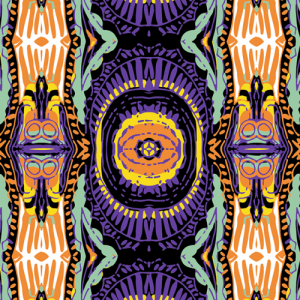
 Senior level Textile and Surface design professional with extensive print driven experience within the fashion industry. Pet product designer for Lollypups Designer Petwear. Currently producing couture fabric harnesses with matching leashes for pets, made in the USA and pure alpaca sweaters, hand crocheted by fair trade artisan cooperatives in Lima Peru.
Senior level Textile and Surface design professional with extensive print driven experience within the fashion industry. Pet product designer for Lollypups Designer Petwear. Currently producing couture fabric harnesses with matching leashes for pets, made in the USA and pure alpaca sweaters, hand crocheted by fair trade artisan cooperatives in Lima Peru.
Specialties: Print and design development utilizing traditional hand painting and CAD (Photoshop CS6 and Illustrator CS6) Trend/ presentation boards, fashion illustration and knit product design. Mill experience. Knit and woven pet apparel design development and production.
Learn more at: styleportfolios.com/Liebo1110
